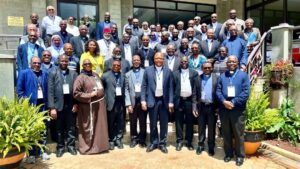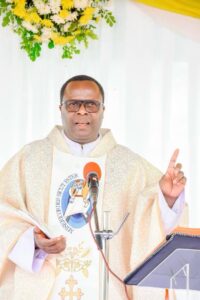ZAMBIA: Zambia Alternative Mining Indaba deprecates Challenges in the Extractive Industry
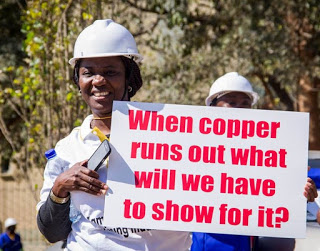
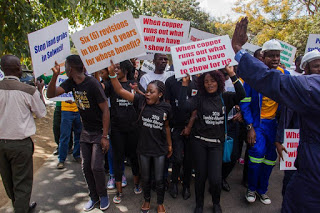 The Zambia Alternative Mining Indaba (ZAMI) 2016 has noted with concern the challenges in the mining sector that included violation of human rights in the communities where mining activities are taking place as well as the continued tax evasion by the mining companies.
The Zambia Alternative Mining Indaba (ZAMI) 2016 has noted with concern the challenges in the mining sector that included violation of human rights in the communities where mining activities are taking place as well as the continued tax evasion by the mining companies.
In a declaration signed by ZAMI Chairperson who is also the Secretary General of the Zambian Episcopal Conference (ZEC) Rev. Fr Cleophas Lungu, stated the concerns of the delegates that the country is losing an estimated 3 billion dollars annually to Illicit Financial Flows (IFFs); the money they said could finance the provision of public services such as health and education as well as critical national development projects such as roads, railways, bridges and power infrastructure which are all key to Zambia’s industrialization.
The delegates further implored the government to synergize efforts among the stakeholders in tackling IFFs and improving platforms for information sharing and educating the public to ensure the development of a mining tax regime that is stable, progressive and seals the loopholes of IFFs, especially transfer pricing.
They also said that there was a need to review and/or terminate tax exemption incentives given to mining companies, especially those proven to engage in tax dodging tactics. They suggested that the government conduct a cost benefit analysis of all existing Double Taxation Agreements with the intent to re-negotiate the terms so that the benefit to the country. At the same time, they recommended an enactment of legislation that compels Multinational Corporations (MNCs) to report their business activity on a Country by Country basis, thereby obliging the disclosure of Beneficial Ownership Information in the extractive sector and provides for government to government exchange of Tax Information that is publicly accessible as well as promote and support capacity building of key financial institutions to tackle IFFs.
Other recommendations were that government should domesticate international policies and treaties aimed at curbing the current tax competition Alternative to mining, Expedite the implementation of polices that support value addition to the raw materials (minerals) and deepening of local linkages noting that this will generate jobs and business opportunities for the citizens.
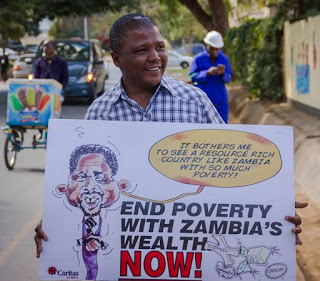 The Indaba also proposed that the government should introduce policies that will support Diversification into other non-traditional exports, specifically focusing on agriculture and tourism, increase investment in the tourism sector and show Transparency in Revenue Collection and Expenditure.
The Indaba also proposed that the government should introduce policies that will support Diversification into other non-traditional exports, specifically focusing on agriculture and tourism, increase investment in the tourism sector and show Transparency in Revenue Collection and Expenditure.
Finally Indaba recommended that both the government and private investors should obtain and respect the Free, Prior and Informed Consent (FPIC) of local people for decisions that may require displacement of persons to pave way for mining projects. They however recognized and appreciated government’s efforts in improving the legislative framework governing the mining sector in Zambia through the continuous revision of the Mining Act.
(Indaba is a Ngoni word for coming together to discuss issues affecting the community).
The 5th Zambia Alternative Mining Indaba (ZAMI) 2016 which was held at a Lusaka Hotel between 21st to 25th June under the theme “Our Natural Resources, Our Future! Extraction for Sustainable Development” attracted Civil Society Organizations, Faith Based Organizations, Academia, Development Partners based in Zambia and strategic partners from Kenya, Ghana, South Africa, Uganda, Mozambique, Zimbabwe and Australia.
This annual gathering discussed development as well as benefits and effects of Mining in Zambia and give recommendations. ZAMI has been in existence for last five years and is currently coordinated at Caritas Zambia offices within the Zambia Episcopal Conference (ZEC) Secretariat in Lusaka.
By Mwenya Mukuka, ZEC Communications Officer
